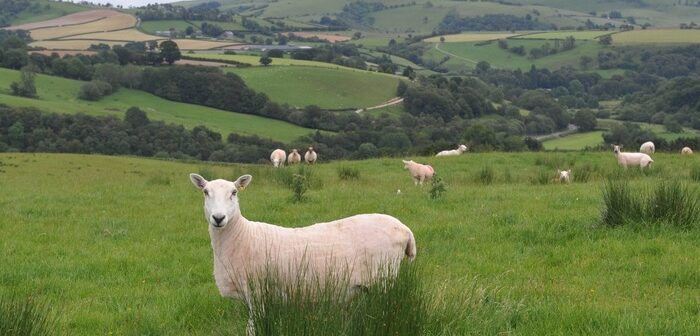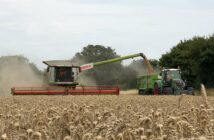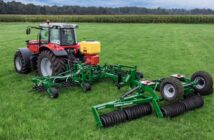An agricultural consultancy helping to deliver £32m worth of advice to farmers in the scale-up phase of Defra’s Future Farming Resilience Fund (FFRF) says its research shows that farmers know they must make major changes to their businesses over the next five years.
The FFRF was established to offer free consultancy advice to businesses in the transition away from the Basic Payment Scheme (BPS).
From now until March 2025, farmers can access advice worth £32m with Brown&Co among the providers.
The company hosted a series of webinars designed to provide farmers with an overview of the scale-up phase of the project and to help them understand how they can make use of the free advice on offer.
The funding is considerably greater than the £10.7m on offer during the previous interim phase, which began in August 2021.
During that interim phase, Brown&Co delivered one-to-one on-farm support to over 1,400 farmers and many hundreds more through remote and digital engagements.
Greg Beeton, Agricultural Business consultant at Brown&Co, says 86% of those farmers recognised that they will need to make significant changes within the next five years.
Within that number, 48% plan to diversify or increase productivity, or both, while 25% plan to leave the sector.
Environmental schemes a logical start
More than a third are already making some changes with environmental schemes a logical starting point for many.
Only 2% are taking up the Lump Sum Exit Scheme.
Considerable restructuring has been identified with 80% of farmers planning succession or family changes within seven years.
“This aligns with the age profile of the project farmers, with 32% of the farmers we worked with over 65 years old,’’ says Mr Beeton.
Information provision has improved, in part as a result of the project support, with 73% of farmers now having most of the information they need to plan change.
“This has resulted in 80% of farmers now identifying diversification or change opportunities but only a third are taking any action yet,’’ Mr Beeton points out.
Fifty two per cent had tenanted land, either as full tenants or a mix of owned and tenanted land; 50% of farmers had livestock.

Greg Beeton
Mr Beeton says both tenants and livestock farmers have particular constraints and challenges to address as BPS is removed and new markets and income streams develop.
“BPS represents on average 11% of turnover across all farm types but 68% of profits,’’ he says.
Produce sales, that is livestock and crops, on average constitutes 66% of income with the remaining third from diversified enterprises, BPS and environmental schemes.
Based on the data it gathered during the interim phase, Brown&Co has designed its scale-up offer to provide a wider range of support.
“In this phase we will deliver to 2,875 farmers across all of England starting from now up until March 2025,’’ says Mr Beeton.
“We will continue to offer our business review and follow up. These face to face on farm meetings will allow for discussion with farmers and families on how to prepare for and adjust to the agricultural transition period.’’
Following that meeting, the advisor will complete and share a report with an action plan and benchmark outputs and follow up remotely to support and encourage a focus on the plan.
A key learning from its work so far is the importance of support tailored to individual farmer needs.
“To enable this we will be offering farmers choices of support that could naturally follow on from an initial business review, or be delivered separately,’’ Mr Beeton explains.




